Paintings made of lead, grass and pain: how Anselm Kiefer's exhibition is mounted at the State Hermitage Museum
Categories: Culture | Exhibition
By Pictolic https://pictolic.com/article/paintings-made-of-lead-grass-and-pain-how-anselm-kiefers-exhibition-is-mounted-at-the-state-hermitage-museum.htmlOn May 30, 2017, a personal exhibition of the German artist Anselm Kiefer "Anselm Kiefer — Velimir Khlebnikov" will start working in the Nikolaev Hall of the Winter Palace. The destinies of peoples". And this is a really important event. Not only because this is the first personal exhibition of the author in Russia, and Kiefer himself is the only living artist who is represented in the permanent exhibition of the Louvre. With the works of Anselm, not everything is so simple — attempts to organize an exposition of the works of the German artist have been made for many years. The artist directly negotiated with the State Hermitage Museum, and only now, when the master created a project specifically for the St. Petersburg Museum, it was possible to agree.
We got behind the scenes to see how the exhibition of the great artist is mounted.
(30 photos in total)
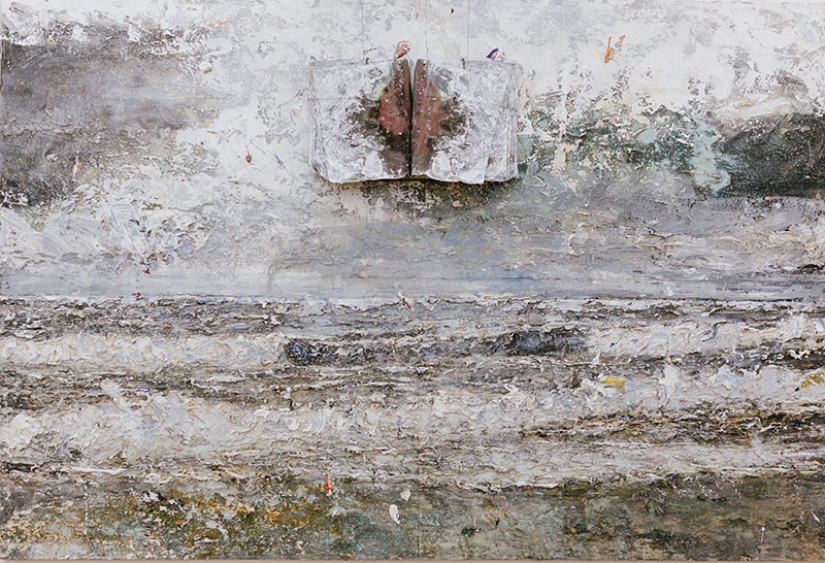
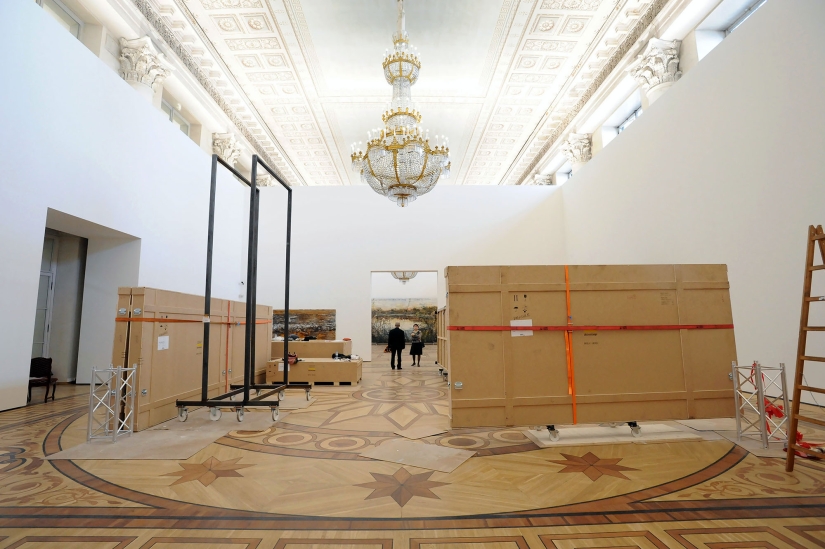 Anselm Kiefer visited St. Petersburg in May 2016 and explored the city for several days. The artist looked at everything — from palaces to courtyards, wells and roofs. Inspired by the city, Kiefer created a new project for the Hermitage in a month, consisting of 30 canvases dedicated to the Russian futurist poet Velimir Khlebnikov (1885-1922).
Anselm Kiefer visited St. Petersburg in May 2016 and explored the city for several days. The artist looked at everything — from palaces to courtyards, wells and roofs. Inspired by the city, Kiefer created a new project for the Hermitage in a month, consisting of 30 canvases dedicated to the Russian futurist poet Velimir Khlebnikov (1885-1922).
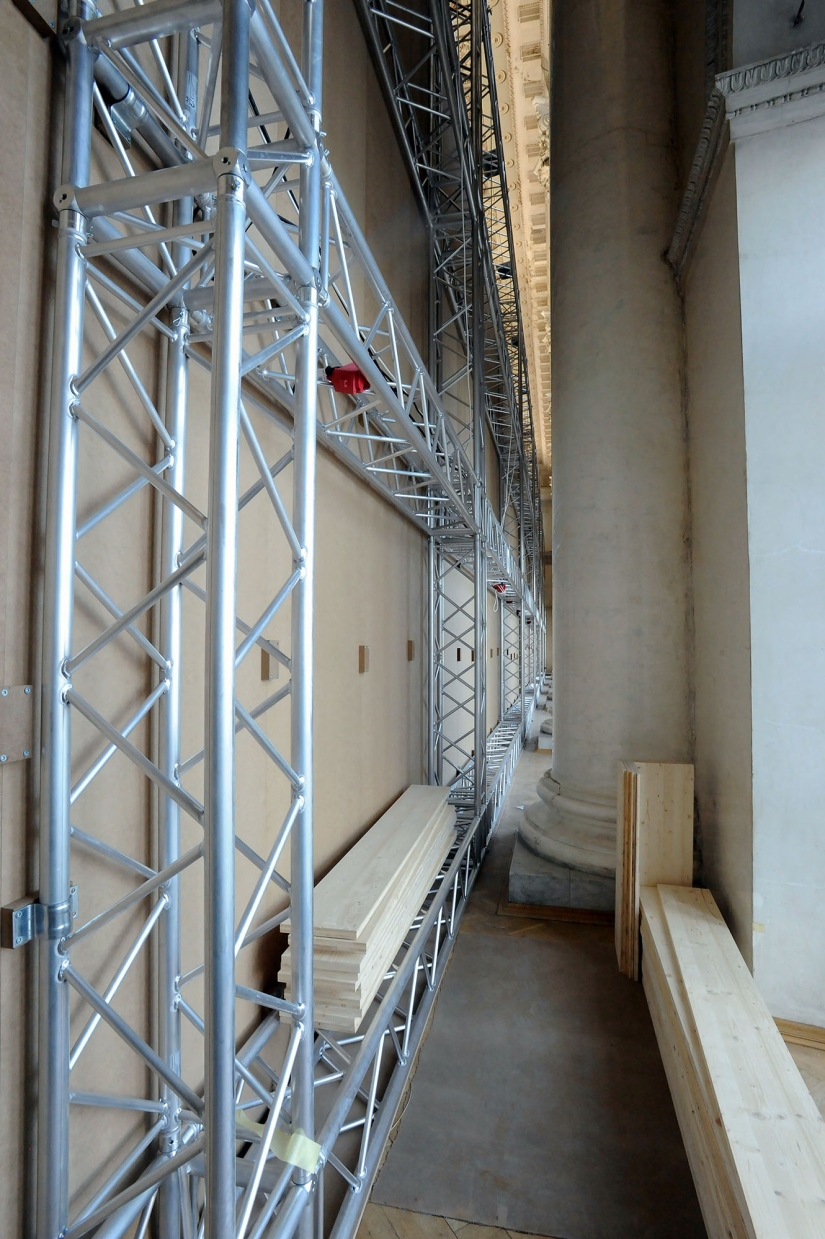 For the exposition of the project in the walls of the Nikolaev Hall, Austrian craftsmen have developed a special design on which canvases will be hung.
For the exposition of the project in the walls of the Nikolaev Hall, Austrian craftsmen have developed a special design on which canvases will be hung.
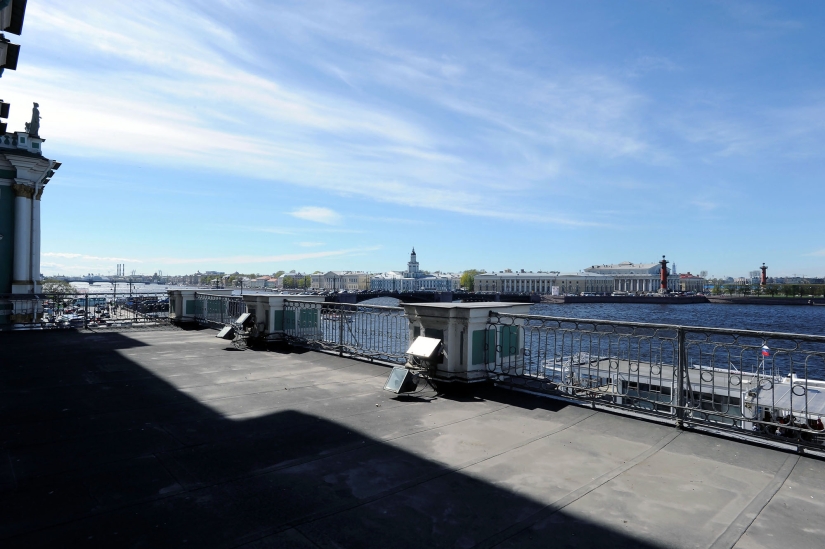 View from the balcony of the Nikolaevsky hall…
View from the balcony of the Nikolaevsky hall…
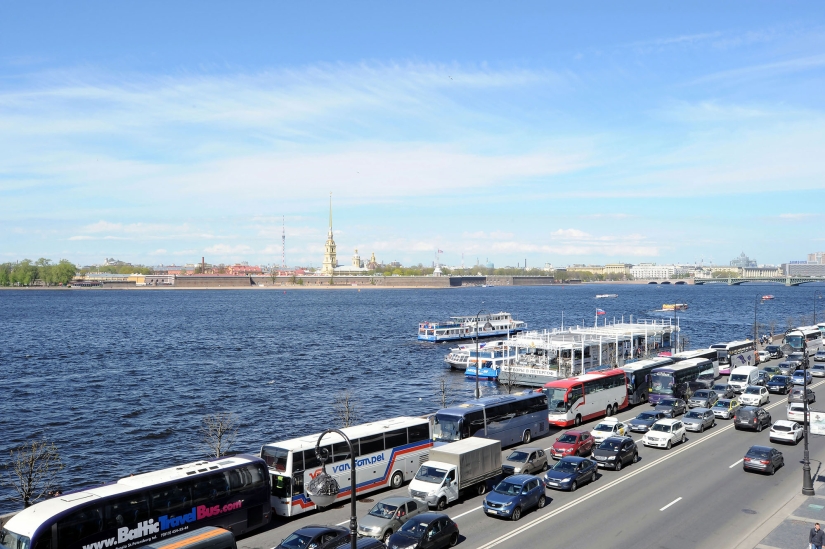 ...and he is not here by chance, since large-sized boxes with the future exhibition of Anselm Kiefer were delivered directly through the balcony with the help of technology.
...and he is not here by chance, since large-sized boxes with the future exhibition of Anselm Kiefer were delivered directly through the balcony with the help of technology.
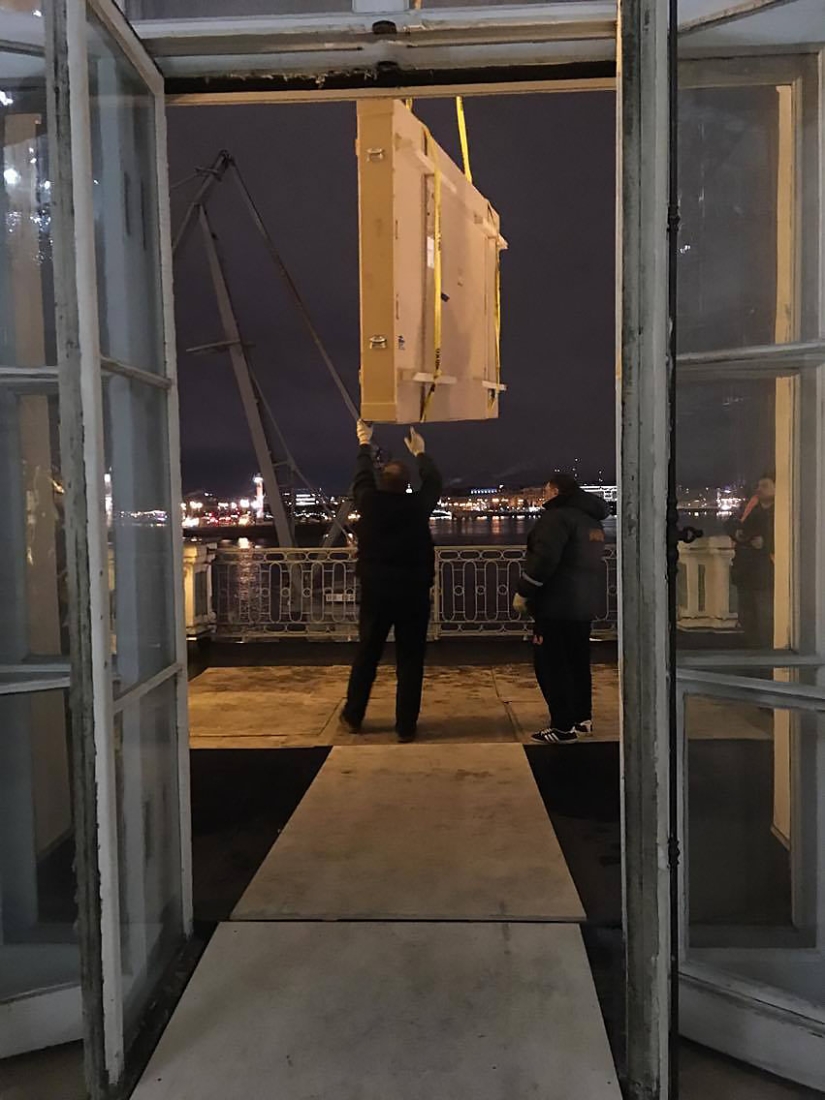
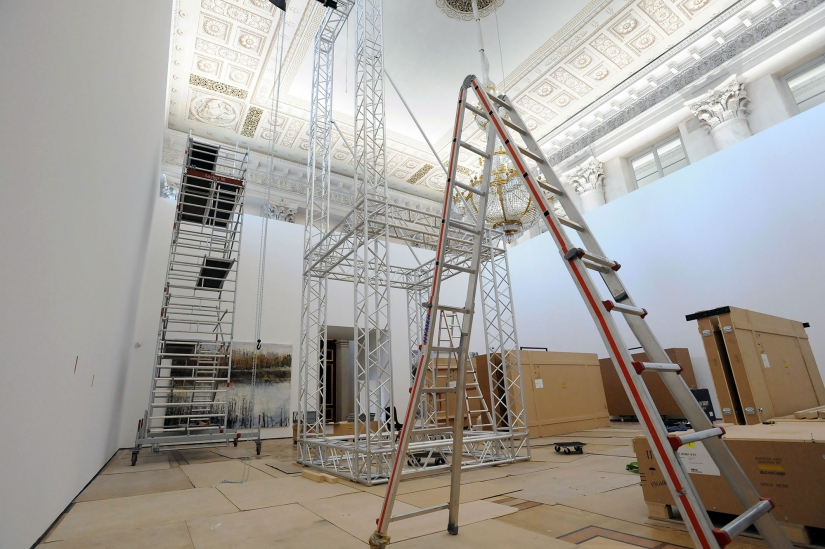 The placement of the exhibition in a historic building excludes the use of machinery — only prefabricated structures and manual labor.
The placement of the exhibition in a historic building excludes the use of machinery — only prefabricated structures and manual labor.
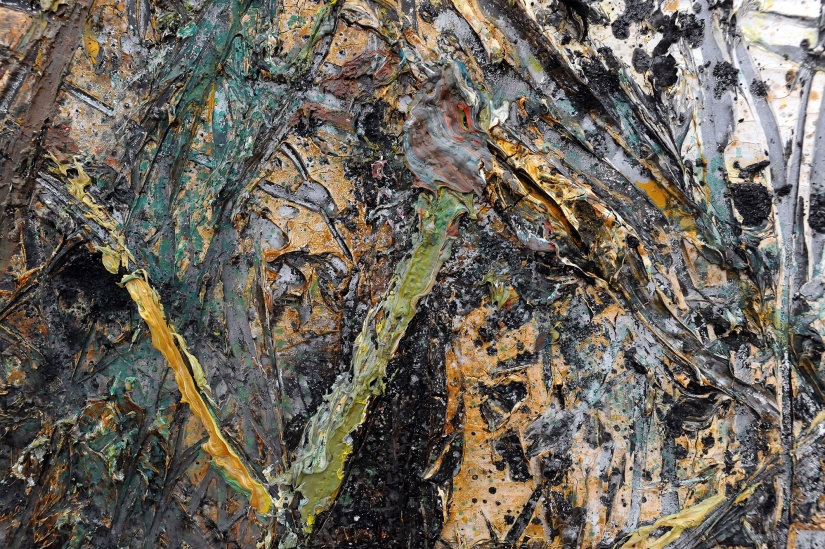 Kiefer's paintings are large—scale, multi-layered, three-dimensional; paints are mixed with dust, earth, clay, rusty metal, straw, dried flowers.
Kiefer's paintings are large—scale, multi-layered, three-dimensional; paints are mixed with dust, earth, clay, rusty metal, straw, dried flowers.
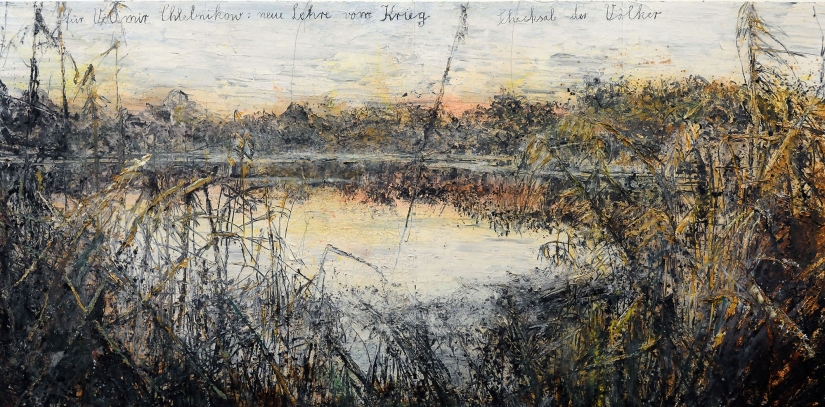 The painting "To Velimir Khlebnikov. The new doctrine of war. The destinies of peoples".
The painting "To Velimir Khlebnikov. The new doctrine of war. The destinies of peoples".
Anselm Kiefer was born in the small German town of Donaueschingen in 1945, two months before the end of World War II. Exploring the topic of suppressing guilt and pain that paralyzed an entire generation of Germans, Kiefer was one of the first artists who were able to openly and boldly address the themes of Nazism and the Holocaust in their works.
In the late 60s and early 70s, Kiefer created a photo project where, in his father's military uniform, he imitated the Nazi greeting in various cities of France, Switzerland and Italy, saying that everyone was trying to hush up. Later, many of these photographs formed the basis of the artist's paintings.
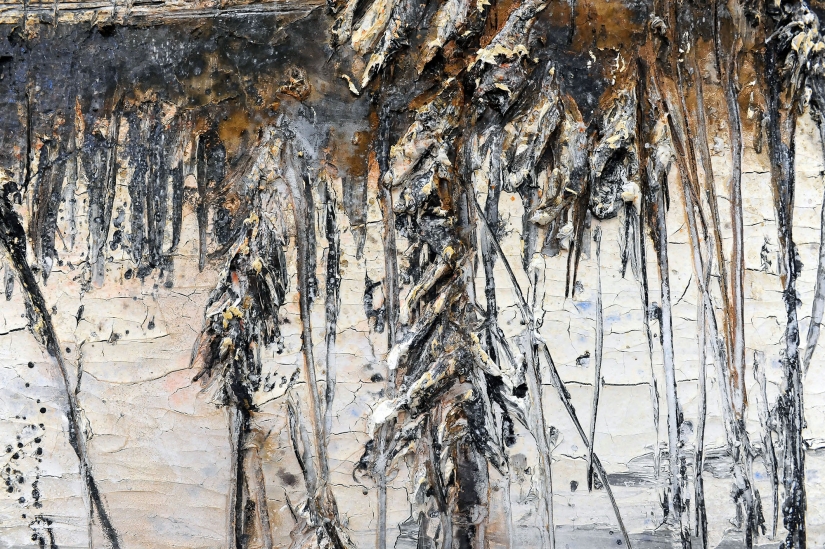 The Russian poet Velimir Khlebnikov, who predicted the revolution of 1917, occupies a special place in the work of Anselm Kiefer.
The Russian poet Velimir Khlebnikov, who predicted the revolution of 1917, occupies a special place in the work of Anselm Kiefer.
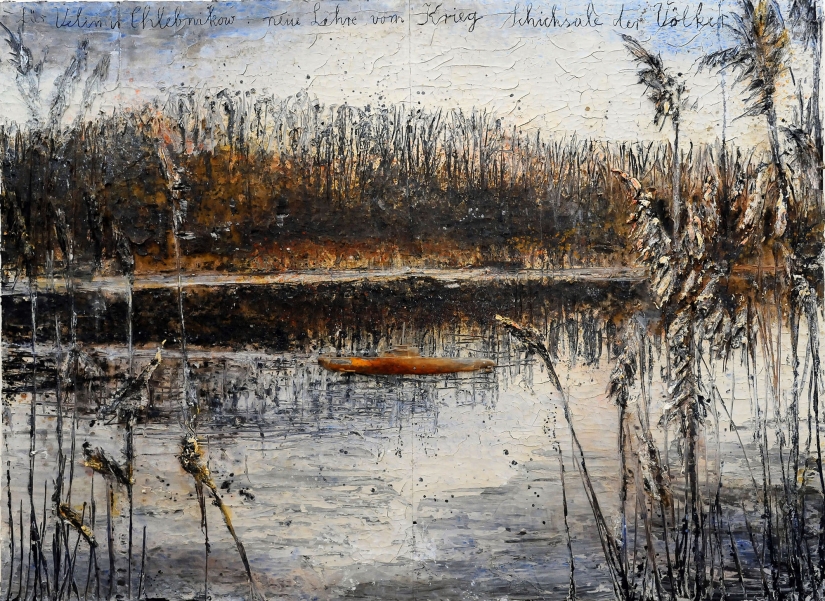 Kiefer explores the central idea for Velimir Khlebnikov — the poet is confident in the cyclical nature of fateful military clashes that occur on water and land once every 317 years. In the pictures, toy battleships seem to have just left the battlefield. Their bodies are deformed, and the main color is the color of rust. The surface of the paintings is uneven, plaster, dirt and clay are applied on top of the paint in places.
Kiefer explores the central idea for Velimir Khlebnikov — the poet is confident in the cyclical nature of fateful military clashes that occur on water and land once every 317 years. In the pictures, toy battleships seem to have just left the battlefield. Their bodies are deformed, and the main color is the color of rust. The surface of the paintings is uneven, plaster, dirt and clay are applied on top of the paint in places.
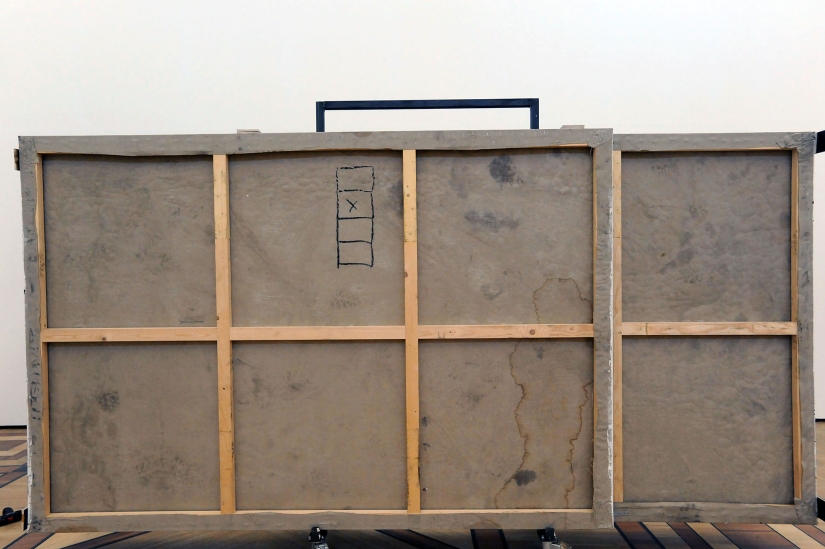 Anselm's canvases are very large-scale and can consist of two, three or even four parts.
Anselm's canvases are very large-scale and can consist of two, three or even four parts.
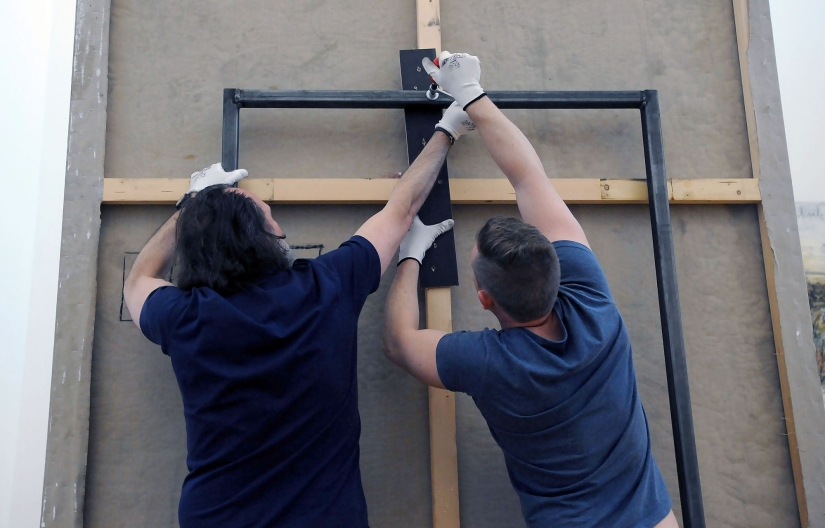 Parts of the canvases are removed from the boxes and each is fixed on a special stand separately, and only then they are fastened together into a single canvas.
Parts of the canvases are removed from the boxes and each is fixed on a special stand separately, and only then they are fastened together into a single canvas.
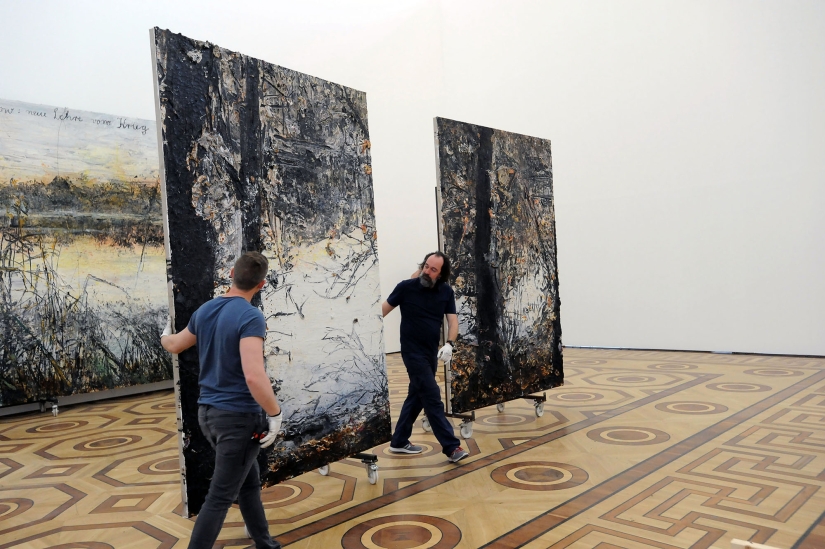 The picture is assembled into one.
The picture is assembled into one.
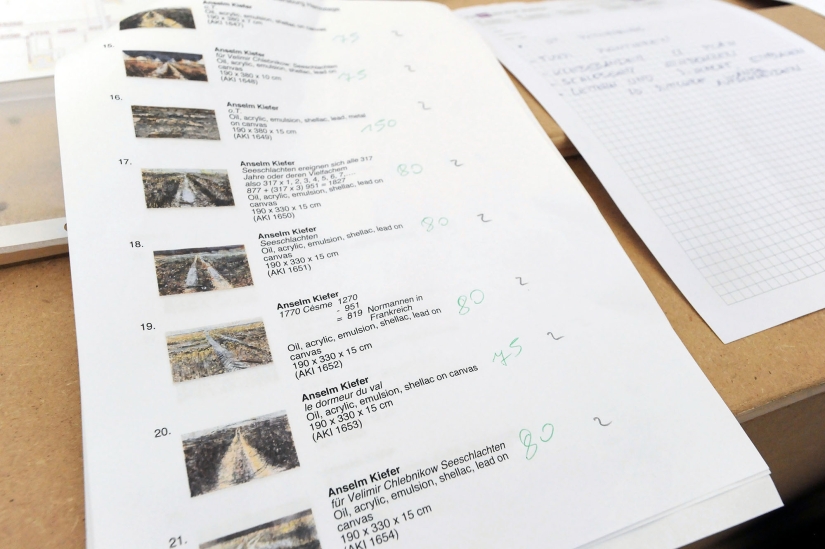
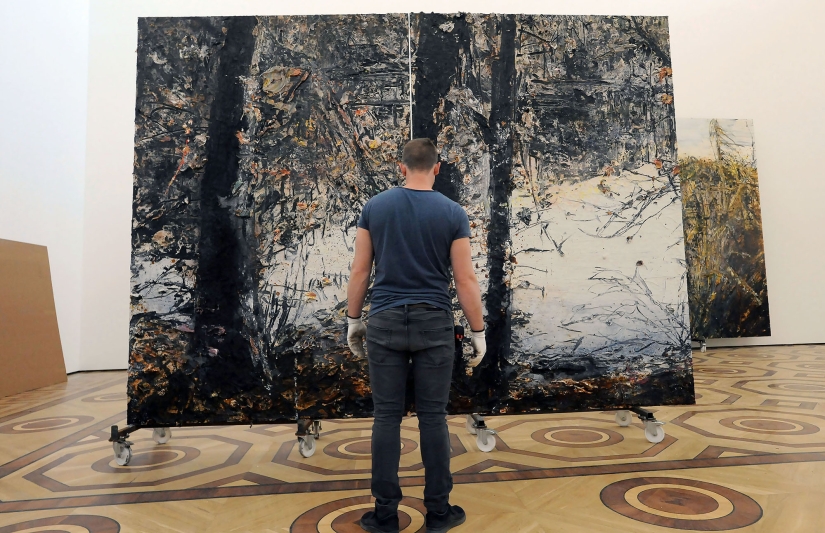 The painting is "Untitled".
The painting is "Untitled".
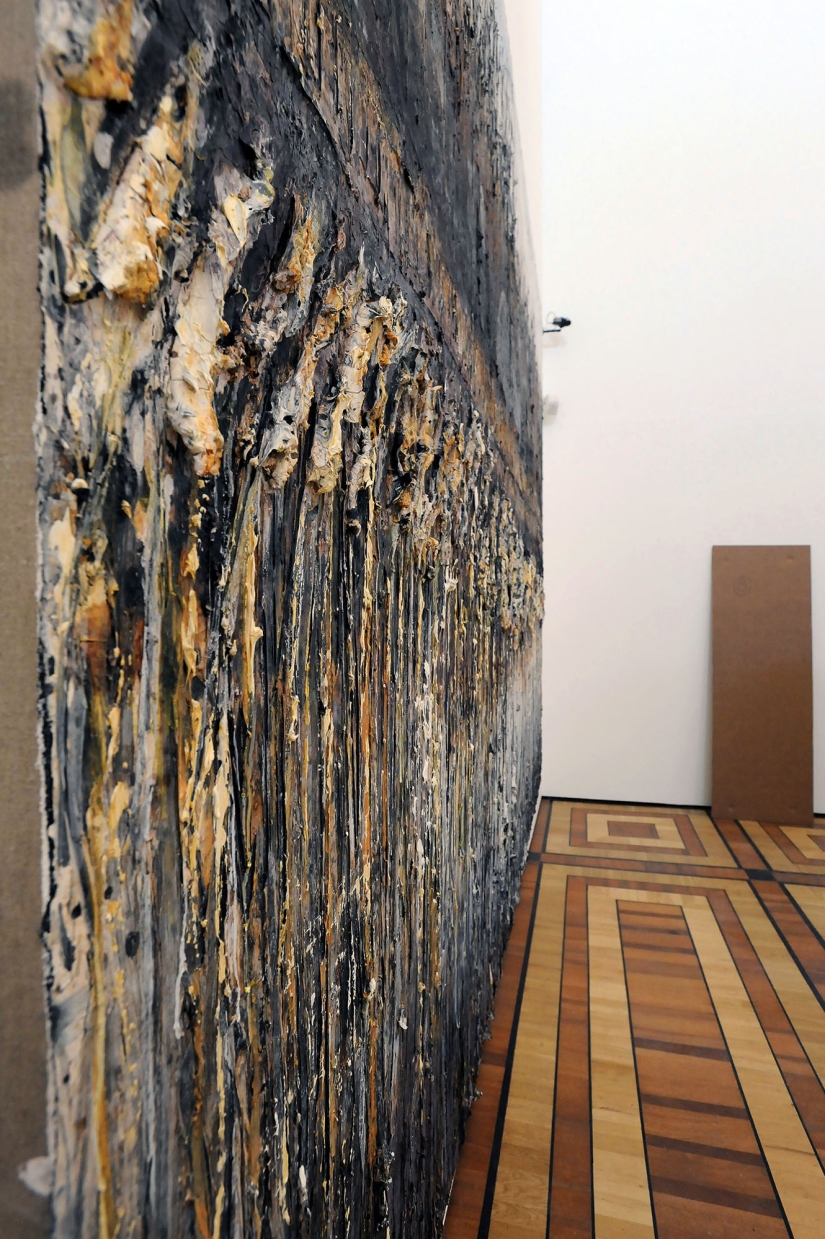 In his work, Kiefer addresses the themes of history, religion, literature, philosophy, images of memory and heritage. The source of inspiration for the artist is world culture in its broadest section: German history, religious mysticism, ancient poetry, Mesopotamian myths.
In his work, Kiefer addresses the themes of history, religion, literature, philosophy, images of memory and heritage. The source of inspiration for the artist is world culture in its broadest section: German history, religious mysticism, ancient poetry, Mesopotamian myths.
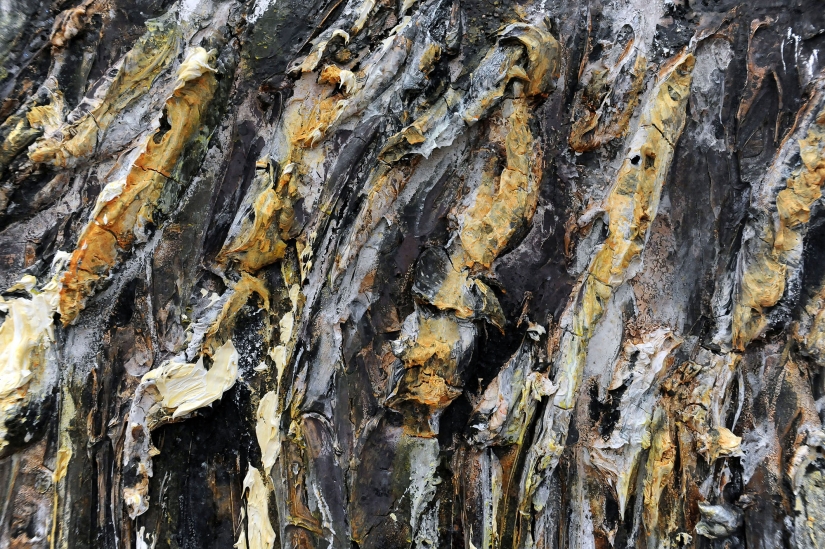 Familiarity with the works of Anselm Kiefer requires the viewer to be ready for reflection and mystical empathy.
Familiarity with the works of Anselm Kiefer requires the viewer to be ready for reflection and mystical empathy.
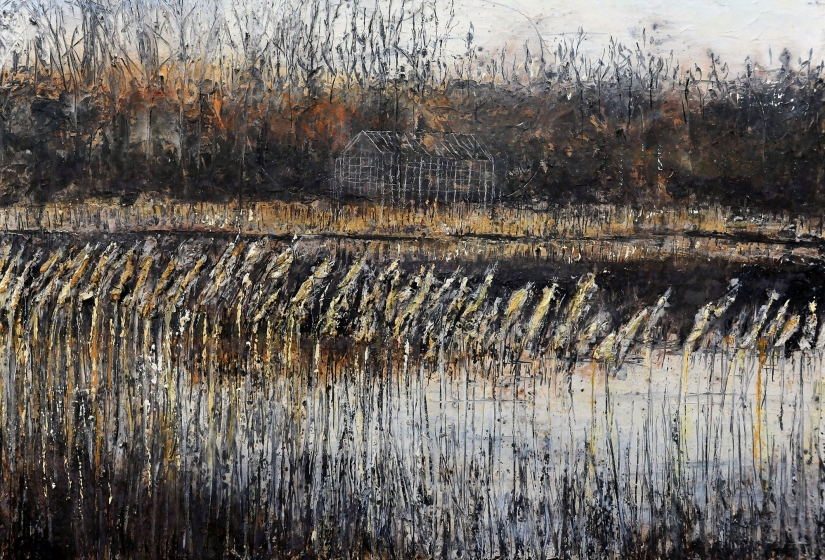 The painting "The artist's Studio".
The painting "The artist's Studio".
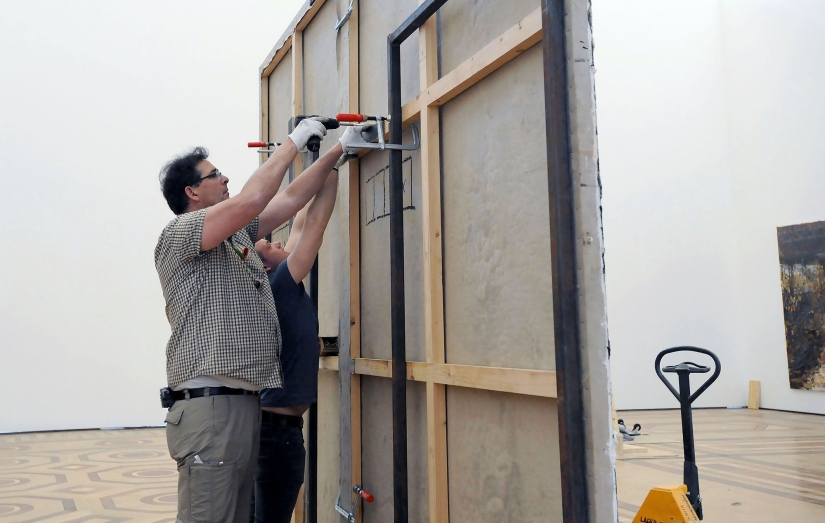
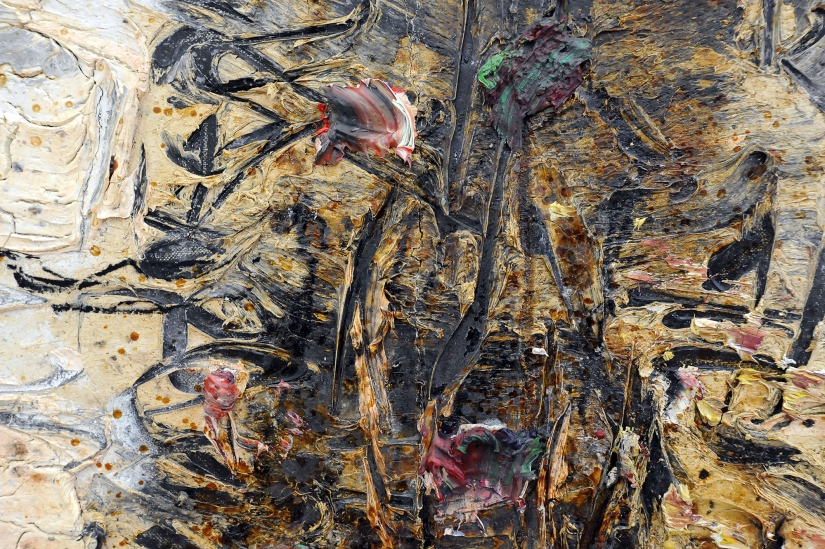
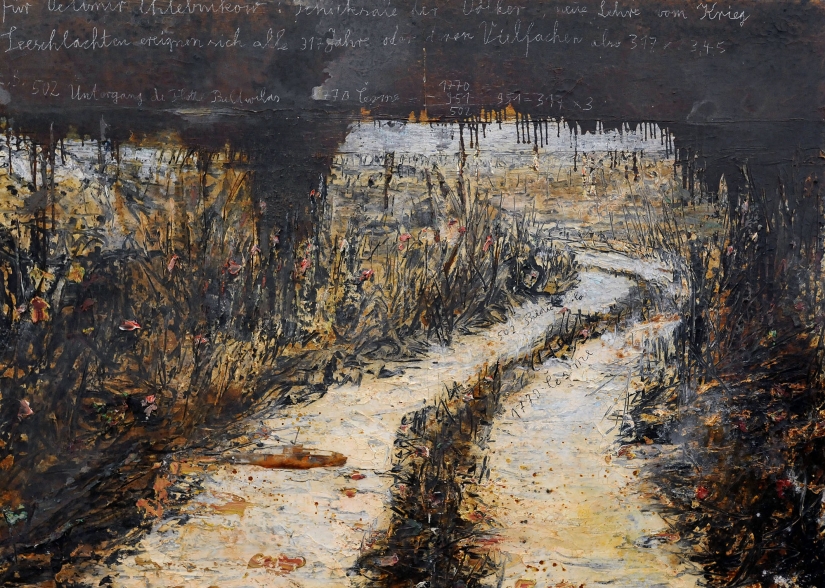 The painting "To Velimir Khlebnikov. The fate of peoples. The new doctrine of war."
The painting "To Velimir Khlebnikov. The fate of peoples. The new doctrine of war."
The paintings and the sections of the walls between them have inscriptions in German, which is typical of the entire work of Anselm Kiefer.
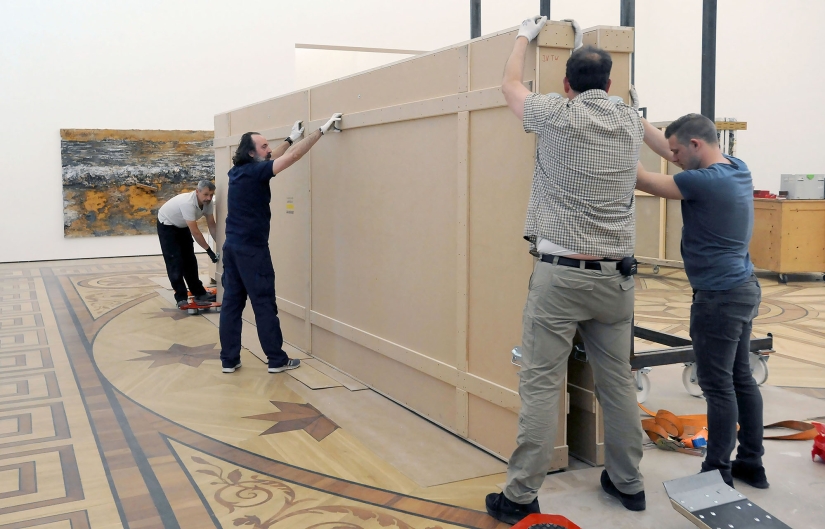 To understand the scale of the installation of the exhibition, it is enough to know that one of these boxes weighs 480 kg, the other about the same.
To understand the scale of the installation of the exhibition, it is enough to know that one of these boxes weighs 480 kg, the other about the same.
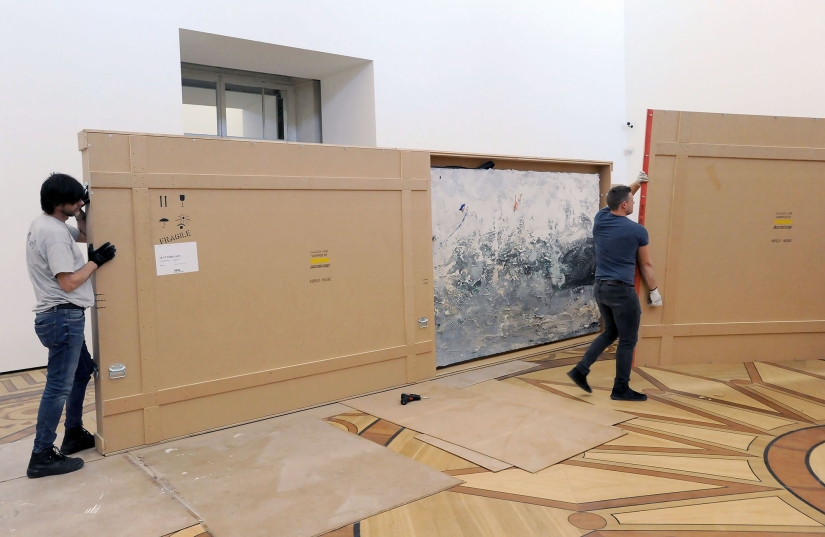
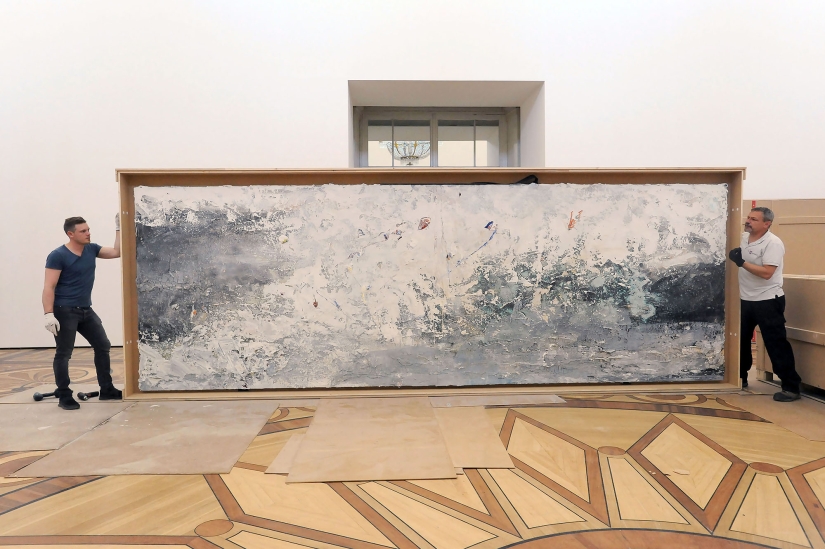 One part of the painting "Spirit over water".
One part of the painting "Spirit over water".
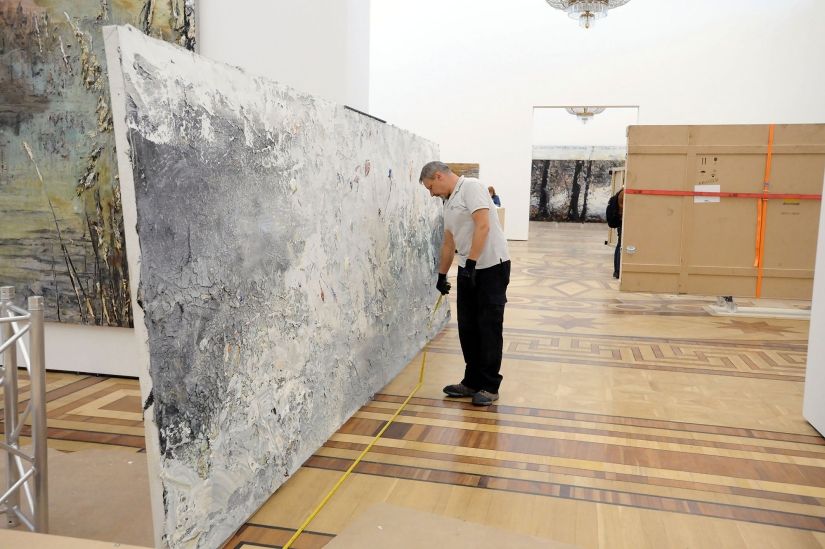
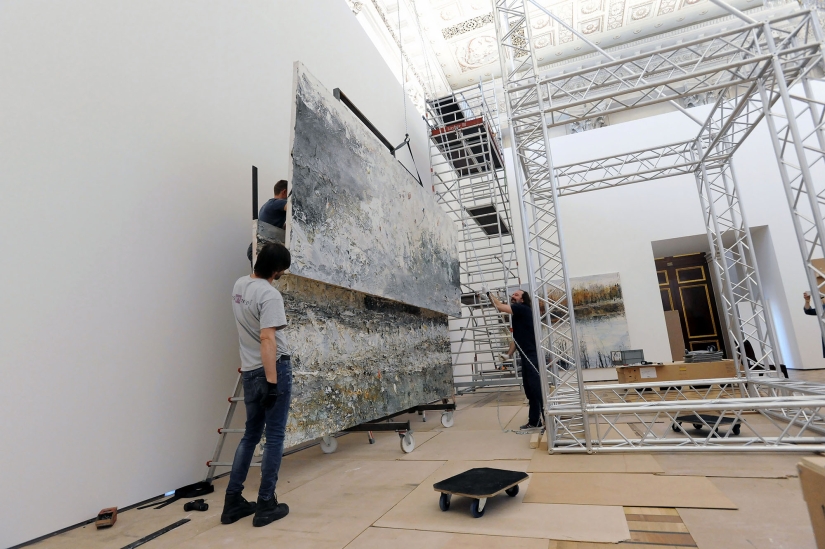
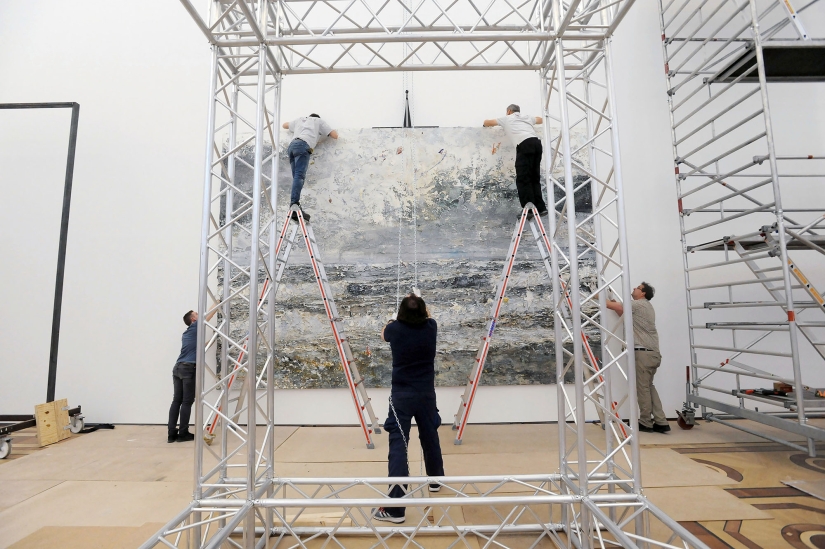
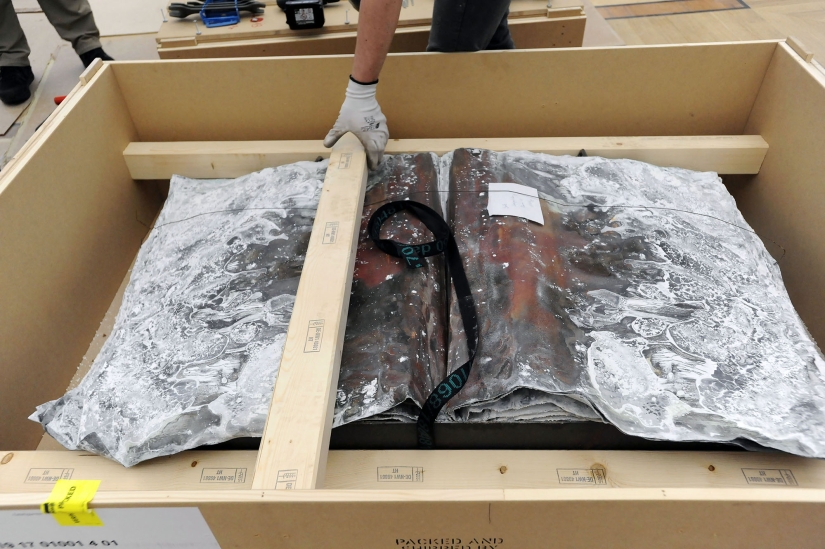 Kiefer's works cannot be interpreted only as paintings, rather, they are art objects that combine painting, sculpture and installations.
Kiefer's works cannot be interpreted only as paintings, rather, they are art objects that combine painting, sculpture and installations.
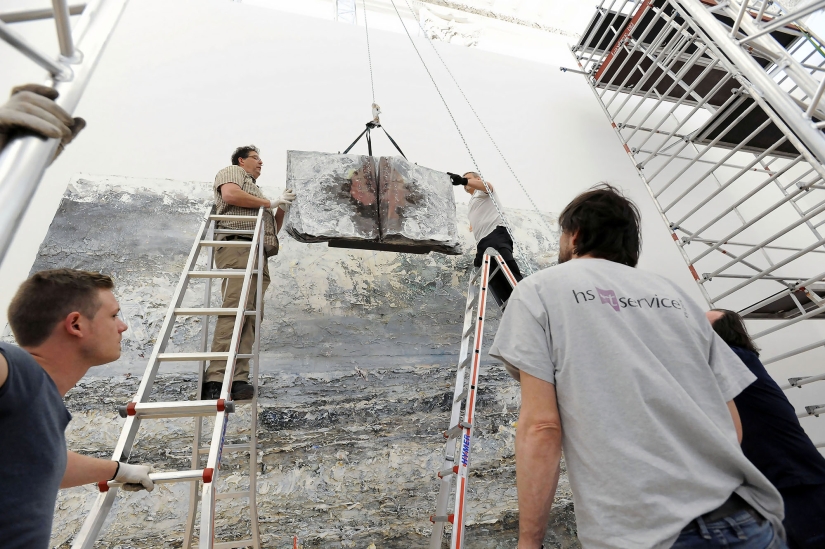 In 1985, the artist bought the dilapidated roof of the Cologne Cathedral: lead sheets became the pages of numerous books that defined the entire Kiefer iconography.
In 1985, the artist bought the dilapidated roof of the Cologne Cathedral: lead sheets became the pages of numerous books that defined the entire Kiefer iconography.
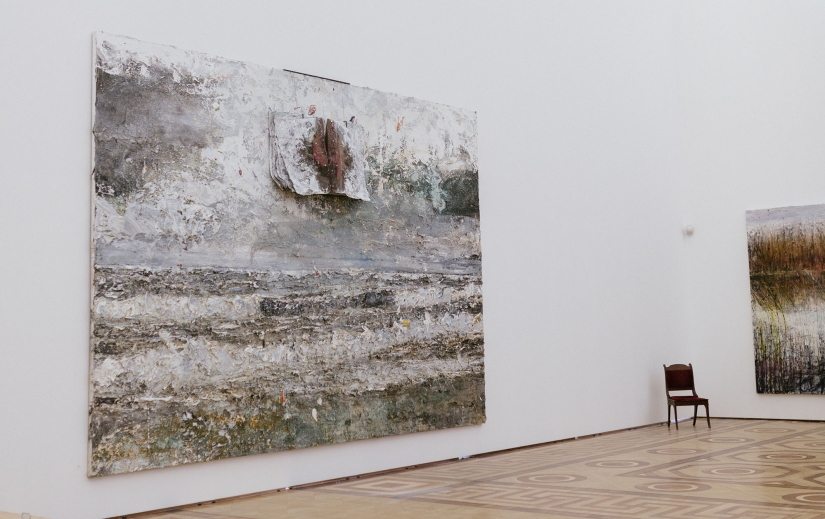 The painting "Spirit over water".
The painting "Spirit over water".
During the exhibition, the paintings will not be fenced off from the audience. This was done at the insistence of the artist, so that nothing interferes with perception. The exhibition is held as part of the 100th anniversary of the October Revolution, which is celebrated in 2017, and will last until September 3, 2017.
Keywords: Art object | World War II | Paintings | Canvases | Artists
Post News ArticleRecent articles

It's high time to admit that this whole hipster idea has gone too far. The concept has become so popular that even restaurants have ...

There is a perception that people only use 10% of their brain potential. But the heroes of our review, apparently, found a way to ...
Related articles

Mikhail Vachaev, an artist from Yekaterinburg, is a master with an original style, whose paintings cannot be confused with the ...

Russian artist Andrey Shatilov has chosen a difficult path — he paints oil paintings. In the digital age this commitment to ...

In a recent issue of sexual harassment on everyone's lips. Inappropriate and Intrusive signs of attention began to see around, even ...

New Year's is a time to surprise and delight loved ones not only with gifts but also with a unique presentation of the holiday ...